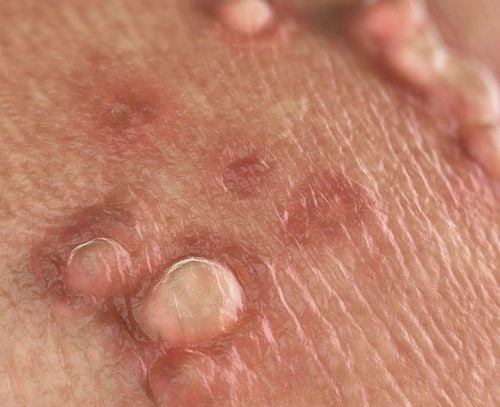Master professionally reviewed the article, Dr. Trinh Thi Thanh Huyen, Obstetrician and Gynecologist, Department of Obstetrics and Gynecology, Vinmec Hai Phong International General Hospital.
Lesbians should be informed of special health concerns, such as sexually transmitted infections and depression, so that they can properly care for themselves.
Women have independent health risks, and women of specific sexual orientations, such as lesbians, bisexual women, and women who have sex with women, must be especially vigilant about these issues. Although risk factors vary according to sexual orientation and sexual habits (including family history and age), understanding specific health risks can help you take better care of yourself.
1. Mental health care
Women with a particular sexual orientation face a high risk of depression and anxiety disorders. The causes come from social isolation, stigma, discrimination, breakups with partners, abuse, and violence. The situation is more serious for women with a particular sexual orientation but not openly and for those who lack social support.
If you notice signs of depression, consult a doctor or a psychologist. If you are shy, share your condition with a partner or someone you trust. Sharing your condition with others is the first step to successful treatment later.

2. Protect yourself from sexually transmitted diseases
Some sexually transmitted diseases (such as human papillomavirus (HPV), bacterial vaginosis, trichomonas, etc.) can be transmitted through lesbian sex. Oral sex and behaviors related to lesbian sex (such as hand-to-vaginal contact, hand-to-anal contact, sharing sex toys, etc.) also transmit sexually transmitted diseases.
Lesbian sex is also a way to transmit HIV - the virus that causes AIDS. There is currently no complete treatment for HIV/AIDS, as well as many sexually transmitted diseases such as HPV or genital herpes. The best way to prevent this is to practice safe sex.
To protect yourself from sexually transmitted diseases, you should:
- Check your own and your partner's health: Do not engage in unsafe sex unless you are certain that you and your partner (same or different sex) do not have HIV or other sexually transmitted infections. Health check-ups are vital since many people are unaware of their ailment or do not care about their health.
- Safe sex: Use protection (such as a dental dam) when having oral sex. Sex toys should be cleaned with hot, soapy water after each use, or when used, they should be covered with a new condom. When performing manual sex (hand-vaginal, hand-anal contact), gloves should be worn.
- Be faithful: Being faithful to a partner who is not infected is an effective way to avoid sexually transmitted diseases.
- Limit alcohol consumption and do not use stimulants: a state of intoxication can easily lead to unsafe sexual behavior. If you use stimulants by injection, do not share needles.
- Vaccination: Vaccination can help prevent some diseases (such as viral hepatitis A and B); women aged 26 and under can be vaccinated against HPV.
3. Seek help for substance abuse
Women with sexual orientations are more likely to smoke, as well as to be addicted to alcohol and other drugs.
If you are a substance abuser, be sure to seek help. Gender organizations, mental health centers, and community centers are available to support anyone who needs help.
4. Abuse
Abuse affects everyone in a relationship. Women with sexual orientations often keep their abuse a secret because of the following:
- The threat of the abuser revealing their sexual orientation to others (lovers, friends, classmates, relatives, etc.).
The fear of stigma and discrimination. - Abuse is associated with anxiety disorders, depression, and hopelessness. If you do not disclose your circumstances and health, it will be more difficult to obtain assistance.
The only way to break the cycle of violence is to intervene as soon as possible. If you are being mistreated, talk to someone you trust, whether it is a friend, a partner, a counselor, or someone you know.
Also, contacting a domestic violence hotline is a good idea, and consider a plan to leave your abuser.
5. Make regular health care a priority
Women with a particular sexual orientation may find it challenging to seek help from a doctor or find someone they trust to share their problems with the other.
Speak to a doctor or professional who is respectful, understanding, and empathetic. Share your sexual orientation with your doctor or professional to learn about regular health check-ups for your age (e.g., blood pressure, cholesterol levels, breast cancer screening, cervical cancer screening, etc.).
If you are not monogamous, get screened regularly for sexually transmitted diseases. Talk to your doctor about any problems to stay healthy and happy.
To arrange an appointment, please call HOTLINE or make your reservation directly HERE. You may also download the MyVinmec app to schedule appointments faster and manage your reservations more conveniently.
Reference source: Mayoclinic













